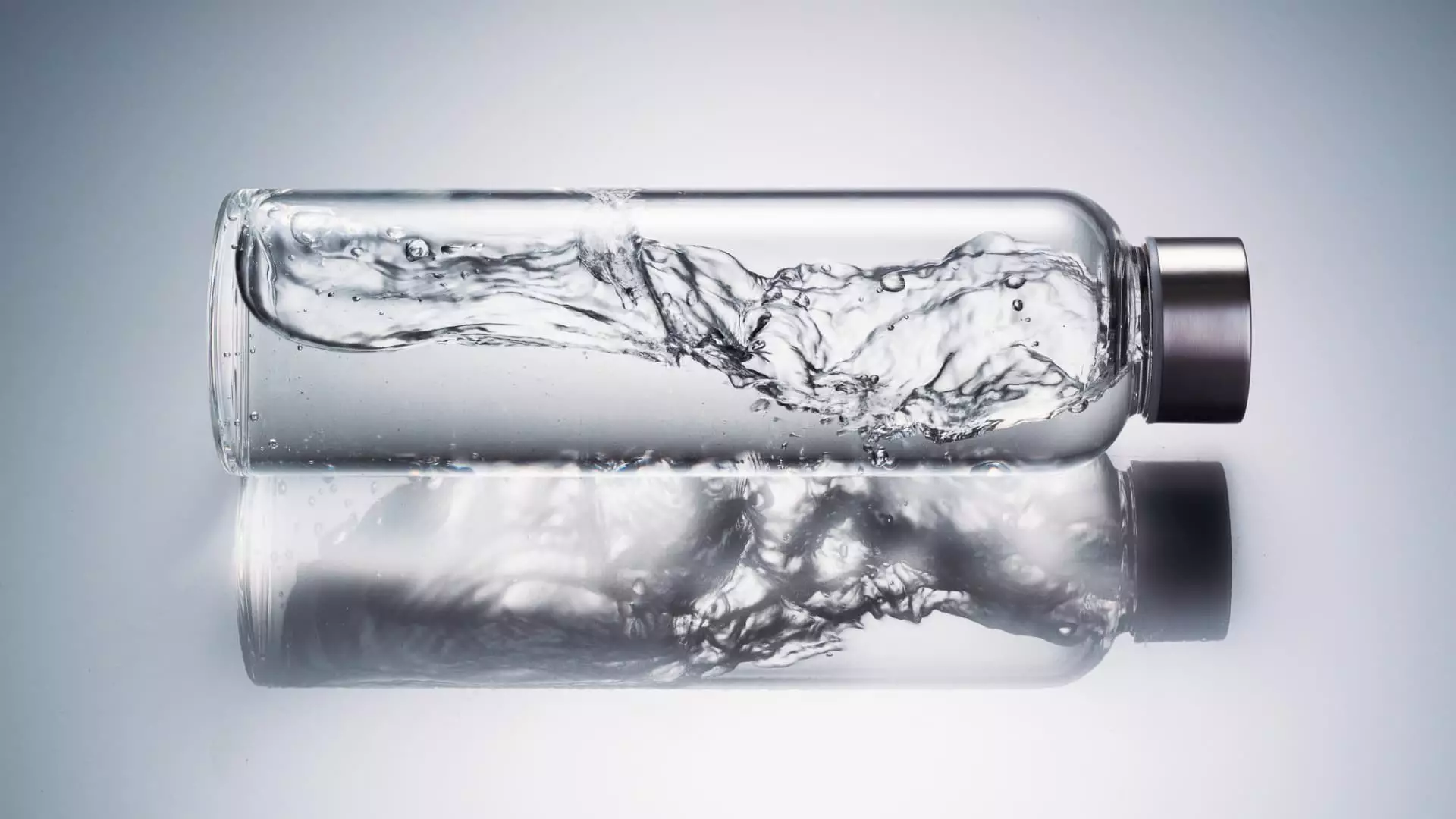In an era where environmental sustainability has become paramount, the hospitality industry is witnessing a significant transformation, particularly in the way it addresses its water supply. Forward-thinking establishments like Singapore’s three-Michelin-starred Restaurant Zen are serving as benchmarks for others by eliminating traditional bottled water in favor of sustainable, locally-sourced alternatives. By charging nearly $500 for an exquisite dining experience while serving only Nordaq water—a local brand purified on-site—the restaurant exemplifies a growing trend towards greener practices in luxury dining.
This shift is not merely about offering premium water; it represents a broader commitment to sustainability. With over 140 Michelin-starred restaurants opting for Nordaq, the company’s mission to reduce single-use plastic bottles resonates deeply in a sector often criticized for its environmental impact. CEO Johanna Mattsson highlights the absurdity of transporting water thousands of miles from its source, an idea that challenges the traditional notion of upscale dining beverages.
Nordaq: A Case Study in Local Sourcing
Nordaq’s innovative water system utilizes local tap water, purifying and bottling it on-site. This method not only localizes the source but also eliminates the carbon footprint associated with transporting glass or plastic bottles from distant aquifers. Such a business model allows establishments like the Mandarin Oriental Singapore, which has incorporated Nordaq since 2023, to significantly cut down on waste. Hotel Manager Cindy Kong noted the efficiency of their bottling facility, capable of producing between 1,000 and 2,000 bottles daily.
The genius of Nordaq lies in its approach to bottle design as well. Bottles are engineered for easy cleaning and reuse—no plastic labels and wide mouths that fit standard dishwashers allow for effective sanitization. This thoughtful design further aligns with the growing consumer demand for eco-friendly practices in hospitality.
Nordaq is not alone in this emerging niche. Companies like Castalie and Purezza are making strides in the sustainable water market, ensuring that hotels are equipped with eco-friendly alternatives. Castalie boasts over 700 hotel partnerships in France, while Purezza has expanded its reach across 13 countries, claiming to serve around 5,000 venues. Such brands underscore a vital shift in how business is conducted in the hospitality industry.
ITC Hotels’ initiative, SunyaAqua, showcases how even traditional hotel chains are delving into sustainability with in-house bottling systems. By producing “zero-mile” water, they effectively eliminate the need for transportation, creating an entirely guilt-free drinking experience for customers. This endeavor aligns with a growing consumer awareness about sustainability, enhancing brand loyalty among eco-conscious clients.
While sustainability is at the forefront, the profitability aspect cannot be overlooked. Many sustainable water brands, like Be WTR, are not just reducing their environmental impact but are also generating significant revenues for their hospitality partners. CEO Mike Hecker touts impressive figures, pointing to over a million imported bottles saved annually by the Westin Dubai Mina Seyahi through their sustainable practices. This dual advantage—enhancing profit margins while supporting environmental initiatives—offers a compelling case for hotels and restaurants to shift their purchasing paradigms.
Moreover, pricing for these innovative water solutions is becoming increasingly competitive. Typically ranging from 11 to 30 cents per bottle to produce, companies like Nordaq and Purezza can sell water for similarly competitive rates compared to traditional mineral waters, providing an attractive financial incentive for establishments. In fact, Purezza’s model suggests substantial annual profits can be generated by switching to sustainable bottled water alternatives.
As the hospitality sector continues to evolve, the integration of sustainable practices such as the adoption of in-house bottled water systems presents a promising avenue for environmental responsibility and profitability. High-end restaurants and hotels are not just following trends but are leading a movement towards a more sustainable future. By adopting local sourcing strategies and innovating around product design, establishments can significantly minimize their carbon footprints while enhancing guest experiences. This newfound emphasis on sustainability is not merely a trend; it is a vital component of the future of hospitality. Adopting these principles may well become a standard expectation, creating a brighter, more sustainable future for the industry as a whole.


Leave a Reply